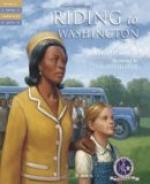(6) The May King, written in 1913, has been twice acted by school children, once in the open air, once in the large hall of the University. Potter Thompson, written in 1911-1912, was acted by students of the University in 1913 and is at present in rehearsal for acting by pupils of the Secondary School of Halifax. The Towneley Shepherds’ Play was acted with slight modifications by University students, under Moorman’s guidance, in 1907. His adaptation of it, written in 1919, has not yet been acted, but was written in the hope that some day it might be. It may be added that he was largely responsible for a very successful performance of Fletcher’s Elder Brother by the University students in 1908.
(7) First published serially in The Yorkshire Weekly Post of 1917-1918.
A LAOCOON OF THE ROCKS
The enclosure of the common fields of England by hedge or wall, whereby the country has been changed from a land of open champaigns and large vistas to one of parterres and cattle-pens, constitutes a revolution in the social and economic life of the nation. Though extending over many years and even centuries, this process of change reached its height in the latter half of the eighteenth and the early nineteenth century, and thus comes into line with the industrial revolution which was taking place in urban England about the same time. To some, indeed, the enclosure of the open fields may appear as the outward symbol of that enwalling of the nation’s economic freedom which transformed the artisan from an independent craftsman to a wage-earner, and made of him a link in the chain of our modern factory system. To those economists who estimate the wealth of nations solely by a ledger-standard, the enclosure of the common fields has seemed a wise procedure; but to those who look deeper, a realisation has come that it did much to destroy the communal life of the countryside. Be that as it may, it is beyond question that to the ancient and honoured order of shepherds, from whose ranks kings, seers and poets have sprung, it brought misfortune and even ruin.
Among the shepherds of the eastern slopes of the Pennine Hills few were better known in the early years of the nineteenth century than Peregrine Ibbotson. A shepherd all his life, as his father and grandfather had been before him, he nevertheless belonged to a family that had once owned wide tracts of land in Yorkshire. But the Ibbotsons had fought on the losing side in the Pilgrimage of Grace, and the forfeiture of their lands had reduced them to the rank of farmers or shepherds. But the tradition of former greatness was jealously preserved in the family; it lived on in the baptismal names which they gave to their children and fostered in them a love of independence together with a spirit of reserve which was not always appreciated by their neighbours. But the spirit of the age




